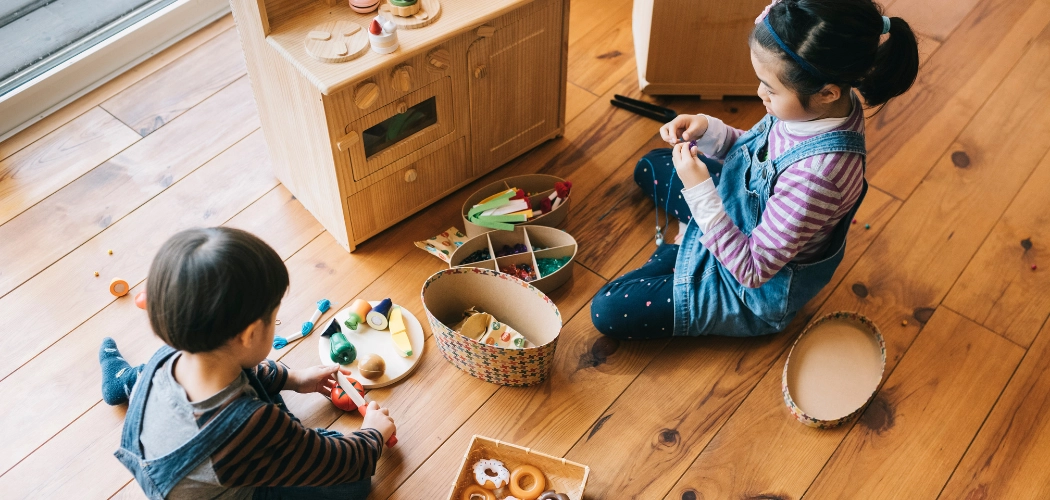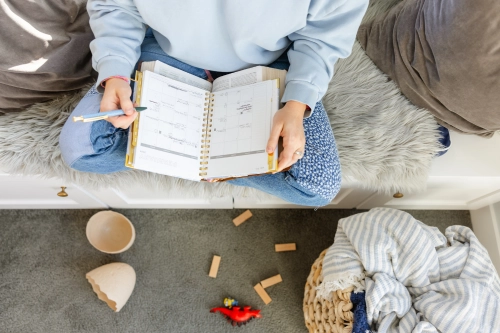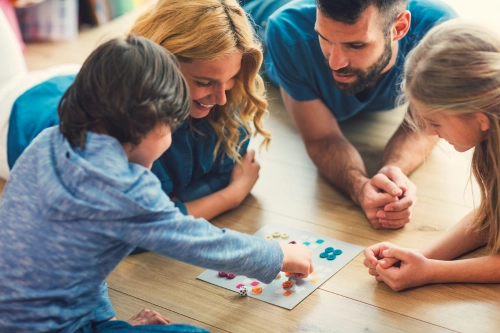Children with autism often display a wide range of different ability levels and characteristics, and may be challenged with more structured learning processes. Game play can provide a safe environment for children with autism to learn new skills.
A number of years ago a mother of two children, one severely autistic and one without those challenges told us that our gameWalk the Dogsallowed her to experience something she thought would never be possible in her life….to see her two children play together, laughing and enjoying a game together. Though she had modified the rules to make the game accessible to both kids, that didn’t lessen the joy of their play or detract from the emotion we all felt in how our game made a difference in her family. – SimplyFun archives
Using strategies that support the child’s characteristics can help the child with autism learn to make gradual modifications of behaviors. Here are a few of the most common challenges and suggestions for helping to make game play more accessible:
Challenges with initiating and maintaining interaction.
Interaction is important in game play, with some games requiring more interaction than others. For children having difficulty with eye contact, choose games where children can look at cards or a game board without having to communicate with eye contact. As children become comfortable and confident they will increase their social interaction.
Challenges with verbal communication, repeating phases, using unrelated expressions or not able to product the language needed to carry on a conversation.
Games that can be played with minimal conversation or gestures are best for children when learning to play games. Games that do not emphasize language will help children learn turn taking with actions, and language related to turns can be added as appropriate. This will help build the child’s confidence for social interaction and playing games with others.
Challenges with change or transitions to new activities.
Select games that build on something the child knows and can comfortably do are a good place to start. For example, games that require the child to do the same move repetitively or use the same thinking skill with each turn will give the child practice, but also allow for the comfort of predictability.
Challenges with “zone out” after a few turns or seek a break for their own activities.
Depending on the child’s needs, the adult can allow a 30 second break for play with a favorite toy or action, a run around the table to help refocus attention on the game afterward, or a brief discussion of the child’s preferred topic. After the break, refocus attention on the game by saying the same phrase each time. For example, say, “Okay! Back to the game. Your turn!” Repetition of the same phrase builds on the child’s expectations for sameness. After several times this will be a “trigger” for return to the game.
Games provides a predictable routine for a child with autism. The structure of the game provides a framework, and adults can add modification of actions and discussion within this comfortable routine to enhance the learning while you play. Find games your child can learn easily and play often, but most of all make sure to have fun!
Dr. Toni Linder is Professor Emeritus at the Morgridge College of Education at the University of Denver in Denver, CO. She is nationally and internationally known for her work on behalf of young children and their families.
*Stories provided by SimplyFun CEO Patty Pearcy.



